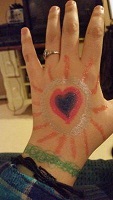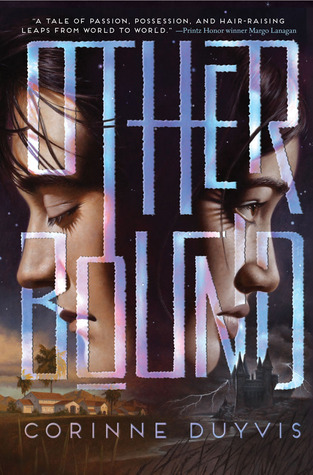Book: My Lady King
Author: Kayla Bashe
Trigger warnings: Emotional/Mental abuse from spouse, talk of suicide, racist villain, internalized racism (from abuse)|(if you spotted any I missed please let me know so I can add them, thanks)
Sub-genre: Romance/otherworld fantasy
Page count: 93
Points of Diversity: queer people, people of color, specified non-binary, specified bi/pan/polysexual
Intersectional Diversity?: yes
Would Recommend?: yes
I have to admit I went into this story initially with the wrong expectations, and that’s really my own fault here. As much as I love fantasy, I’ve never actually read a fantasy romance novel before (unless you count Twilight, which I don’t). Sure, I read Nora Roberts in high school while I figured out puberty, but I never really went looking for romance work outside of that. It didn’t really interest me. So when I started reading My Lady King I found myself drawn out at first because I was expecting your typical high fantasy adventure but what I was reading didn’t have that feel at all. I was having a conversation with Kayla Bashe and Shira Glassman on Twitter about my Game of Thrones article and YA vs adult shelving when Bashe mentioned that what she writes is fantasy romance and suddenly it all fell into place. The way the two protags fell for each other so quickly, the focus on body descriptions, the search for excuses to get our leads into less clothing while near each other. It all made sense once I adjusted my expectations to fit the genre I realized I had stumbled upon.
Now, when I say adjusted expectations, I do not mean lowered expectations, whatever bad rap romance may have among the general populace. What I mean is looking at the work with a different critical lens, like changing a pair of glasses… assuming I wore glasses. And like I said this confusion is entirely my own fault for not taking a closer look at the genre I was reading ahead of time, so this is by no means meant to be a criticism of the author’s work, just a note on my personal experience with the story. When I started, I thought I was reading a fantasy intrigue adventure book that was oddly out of focus when it came to intrigue or adventure. About the half-way point I realized that I was actually reading a rather adorable romance set in a fantasy world. With this new pair of glasses I saw the book much more clearly and came to enjoy it a lot more.
What has to be my favorite part of this story is how wonderfully diverse the characters are. We have multiple races, gender identities and sexual identities represented throughout the book both as primary protagonists and side characters. Bashe has also created a world where genders and sexualities that differ from cis/straight are openly welcomed and embraced as part of society. The idea of our “Lady King” Esdelot marrying a woman is never questioned, just accepted and the book outright tells us that both Esdelot and her brother embraced different gender roles for themselves. Hell there’s even a brief mention of how it’s considered good luck and standard practice to have a nonbinary person dance around a building once it’s finished being built.
Things are a little different when it comes to races but only in the sense that the one person who portrays any racism is shown as the villain of the story long before she exhibits this attitude. Esdelot’s love interest, Keziah, who is black, does have some internalized racism towards herself based on how she looks. However, we discover this as we also learn that the attitude came from years of emotional and mental abuse she endured at the hands of her wife who eventually kicked her out.
A major theme of this story has to do with Keziah overcoming that abuse with Esdelot’s help and learning to see herself as beautiful for who she is. The narrative is written in such a way that the attitudes of our villain and the thoughts of Keziah in regards to racism are not only painted as wrong and toxic, but also easily separated from the author’s own views. So when characters of color are described in the narrative it is done using words meant to portray beauty and inner strength. Any comparisons to being “barbaric” are clearly on the side of the villain. So all in all I think the story is very inclusive and respectful of many different diversities.
When it comes to the story as a whole I would say it’s a bit hit and miss. I feel the relationship between Esdelot and Keziah is very well done and it was wonderful to see Keziah find the inner strength to begin healing from her past abuse. However, the two final conflicts, one with the villain and one with Death himself, felt too easily resolved and a bit anti-climactic as a result. It’s easy to understand why though, as the book is only 93 pages long and being a writer myself I understand the struggle to convey climactic battles in such a condensed space. The other issue that came up, I don’t know if it was because the ebook was poorly formatted but it was sometimes hard to tell when the story had switched perspectives between Esdelot or Rivkah when the two were traveling together. However it never reached a point where I was at a loss for what was going on.
Despite those quibbles I did, overall, enjoy My Lady King and would recommend it to anyone looking for a short and sweet fantasy romance novel or just anyone looking to support an independent author. The only issues I had with the book could easily have been fixed with a longer book and, honestly, I would like to see that. I found the world and it’s characters very interesting. The idea of Death being an actual being who comes knocking on your door to take the dying away, that you can actually talk to him, and he can punish those who displease them by refusing to take them when they’ve been mortally wounded? That is the epitome of awesome and I would love to see a longer story that expands on everything introduced here.
This book was clearly written with a sense of hope, passion, and love that is all to quickly forgotten or trodden on in today’s focus on cynicism, blood, and death. I hope Kayla Bashe continues to write and I encourage other people to support her work. We need more optimistic storytellers in our fantasy.



